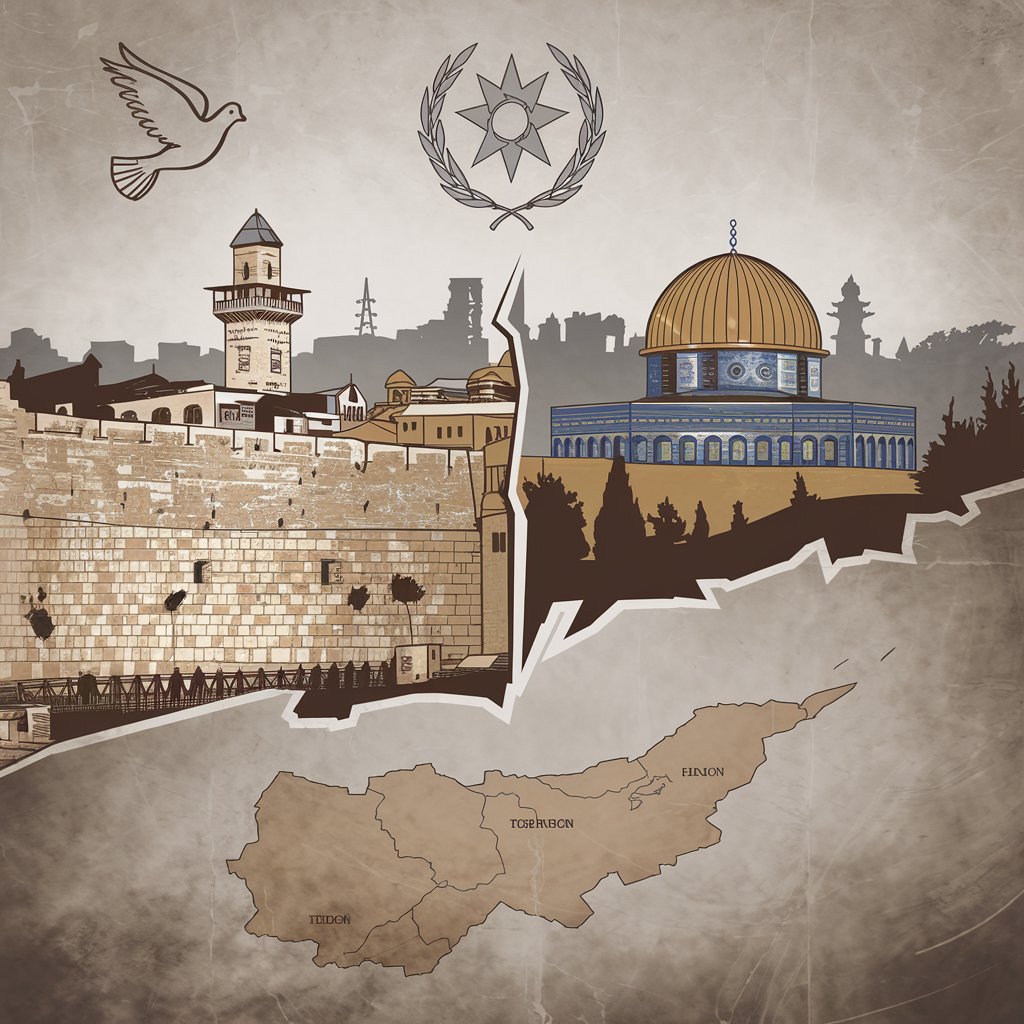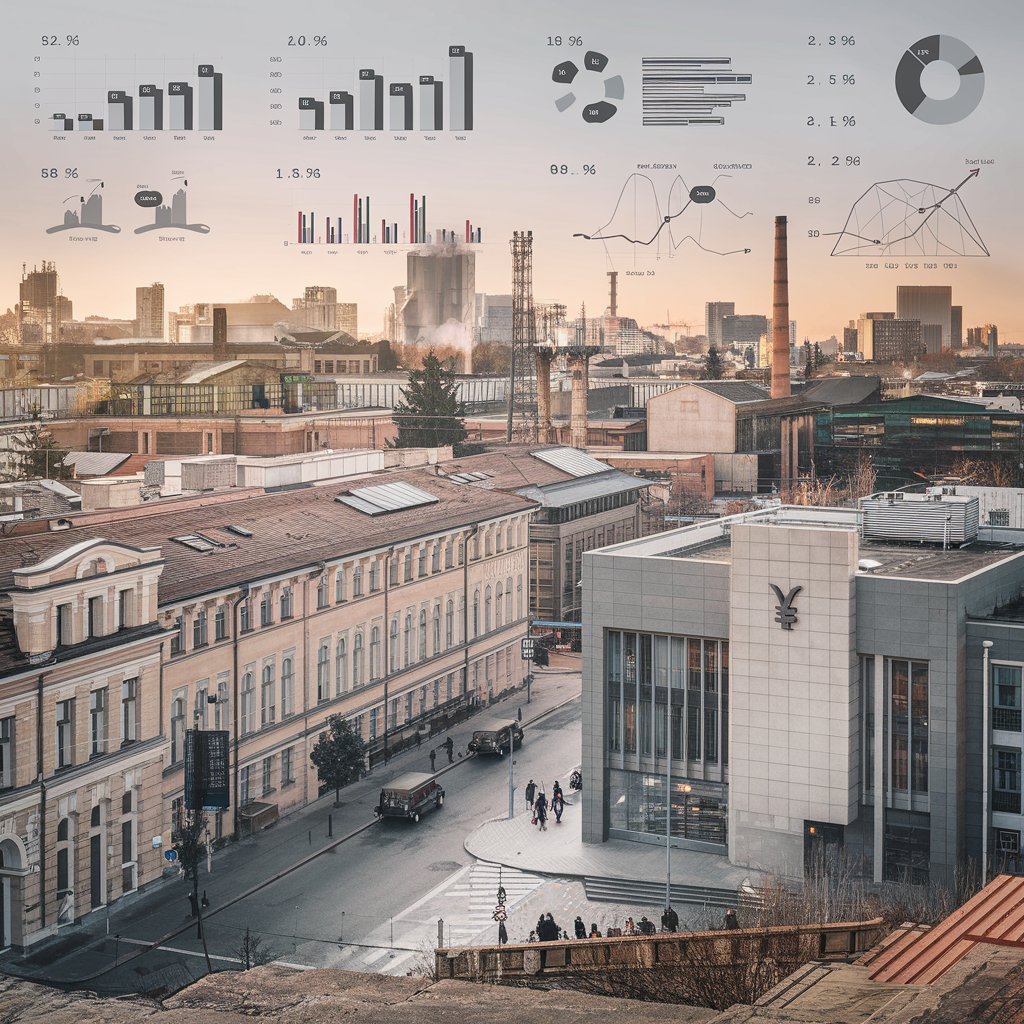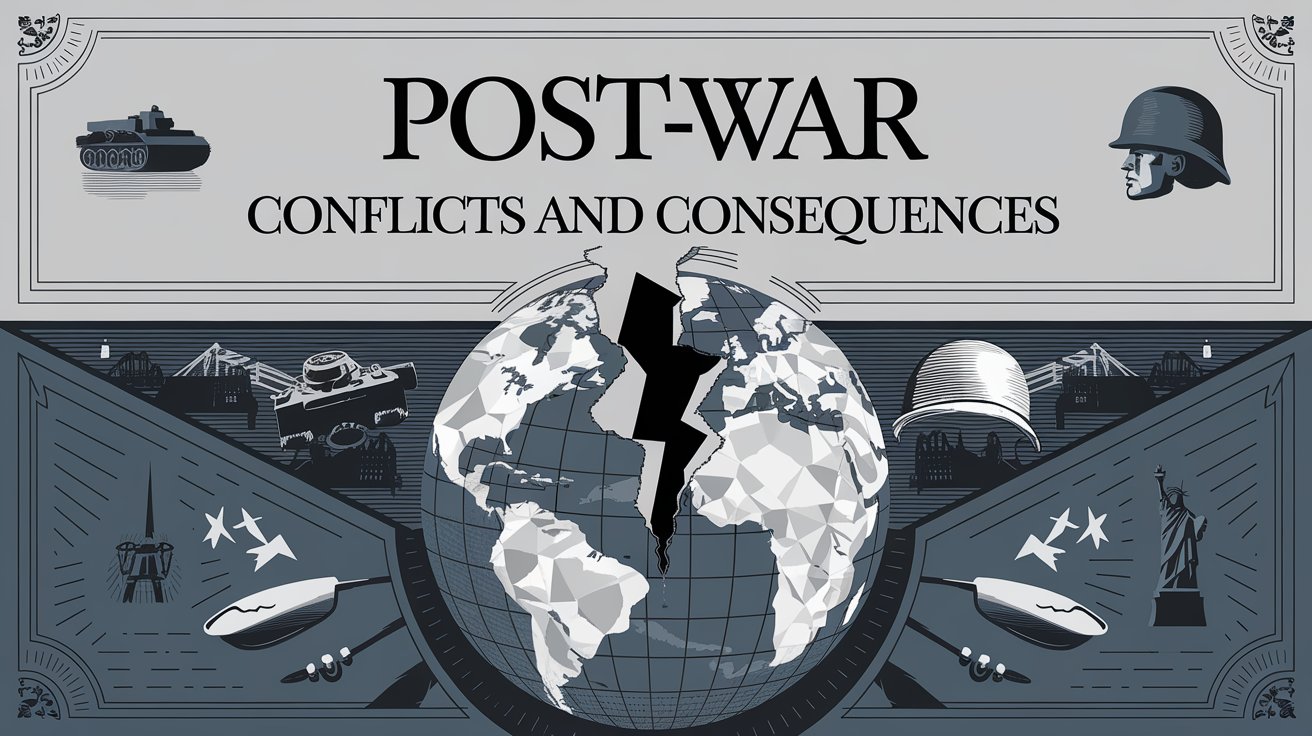The aftermath of World Wars I and II unleashed a wave of post-war conflicts and consequences that reshaped international politics, economies, and societies. From the Cold War to the decolonization struggles, these events have left a lasting impact on global relations and continue to influence our world today.
Key Post-War Conflicts and Their Impact
The Cold War
The Cold War (1947-1991) was a defining post-war conflict marked by intense geopolitical tension between the Soviet Union and the United States. This period fueled an ideological rivalry, an arms race, and various proxy wars. The Korean War, Vietnam War, and Cuban Missile Crisis stand out as key moments in this era, significantly impacting the world stage.


Decolonization and Regional Conflicts
In the post-war period, countries in Africa, Asia, and the Middle East pursued independence from European powers. This process often sparked violent struggles as nations faced identity, governance, and territorial challenges. Conflicts in Algeria, Vietnam, and Palestine highlighted these struggles and the lingering effects of imperialism, which continue to impact these regions today.
The Middle East Conflicts
The end of World War II marked the beginning of many conflicts in the Middle East. The establishment of Israel in 1948 led to wars and ongoing disputes, resulting in long-term instability. These conflicts affected global politics, economics, and security beyond the region itself.

Consequences of Post-War Conflicts
Social-Political Shifts
Post-war conflicts triggered significant social and political changes. Many countries altered their governance, with some embracing democracy and others facing authoritarianism. Movements like the U.S. Civil Rights Movement and South Africa’s anti-apartheid struggle were part of this larger social change.

Economic Impact
The economic effects of post-war conflicts were profound. Nations struggled to rebuild, which led to shifts in policies and practices. International organizations like the United Nations and IMF emerged to foster cooperation and stability. Yet, these institutions faced challenges addressing global economic inequality.

International Relations Theory
Post-war conflicts spurred the development of international relations theory. Scholars and policymakers sought to understand and manage global tensions. Realism, liberalism, and constructivism emerged, guiding diplomacy and international policies.

Conclusion
Post-war conflicts and their consequences have left a lasting legacy. The Cold War, decolonization, and Middle Eastern struggles continue to shape today’s world. Understanding these dynamics is crucial for navigating current international relations and working toward global peace.

